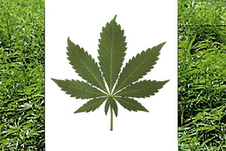William Shakespeare, THE Bard, the best known english language poet period. Arguably one of the best fiction writers of all time, but certainly one of the most unique writers of history. His works consist of 38 plays, 154 sonets, 2 long narrative poems, and more.* I don't think there is a need to go into the history of William Shakespeare, his plays are required reading at most schools in a variety of levels.
I myself am a huge fan of the works of Shakespeare. Richard III was the first play I ever saw of his, and I was hooked. Throughout my life I have seen many of his plays and I have loved them all, with the exception of an adaptation of Macbeth put on in London Ontario which for some inexplicable reason had all the characters dressed as if they were fighting in WWI.
In addition to his plays and poetry Shakespeare is a wordsmith in another way as well, an entirely literal way. The english language is an ever changing, and the language we speak now has nothing to do with the old or even middle english. The fact that it is constantly growing, changing, and evolving is a good thing, it means it is a living language instead of a dead and stagnant one. The more people speak a language the more they invent colloquialisms and slang, as colloquialisms and/or slang becomes more common the more likely it is to be adopted into formal speech and thus become legitimate words. People invent words all the time, and writers are particularly adept at this. Shakespeare was definitely no slouch in this regard. Depending on who you talk to he coined between 1,700 and 8,000 words. Imagine a world where words such as accommodation, aerial, amazement, assassination, bump, critic, gnarled, hurry, generous, majestic, inauspicious, road, sanctimonious, pious, and many more weren't part of our vocabulary. **
In other words Shakespeare was a genius in his own right. But was he a pot head?
Well, this is hard to ascertain. Marijuana, cocaine, opium, and many other narcotics were available in his time, and they were commonly used, although rarely recreationally. Marijuana was known throughout the ages, including Shakespeare's time as a medicinal herb and was often prescribed for a wide variety of ailments, Shakespeare's son in-law was a physician and would thus have extensive knowledge of the benefits of marijuana and it is likely that this knowledge would have been readily available to Shakespeare. Critics will argue that Pope Innocent VIII banned cannabis 80 years before the Bards birth, however, much like today, pronouncements in this regard were often ignored, and various medical texts from the time still listed cannabis as a viable herbal remedy for many ailments.
Sure this evidence is specious at best, but surely you don't think I'd leave it at that do you? Ok lets get onto the REAL evidence shall we. Dozens of clay pipes were discovered in the garden of Shakespeare's land and date to the time Shakespeare lived, it is possible they were not his, but it is rather likely they were. Sure, clay pipes alone aren't proof enough, but gas spectrometer tests demonstrate that the contents of these pipes were a variety of substances, several containing traces of cocaine, and at least one containing clear traces of marijuana. These pipes were packed with dirt from the garden when they were tossed aside protecting them from modern contaminants.***













No comments:
Post a Comment